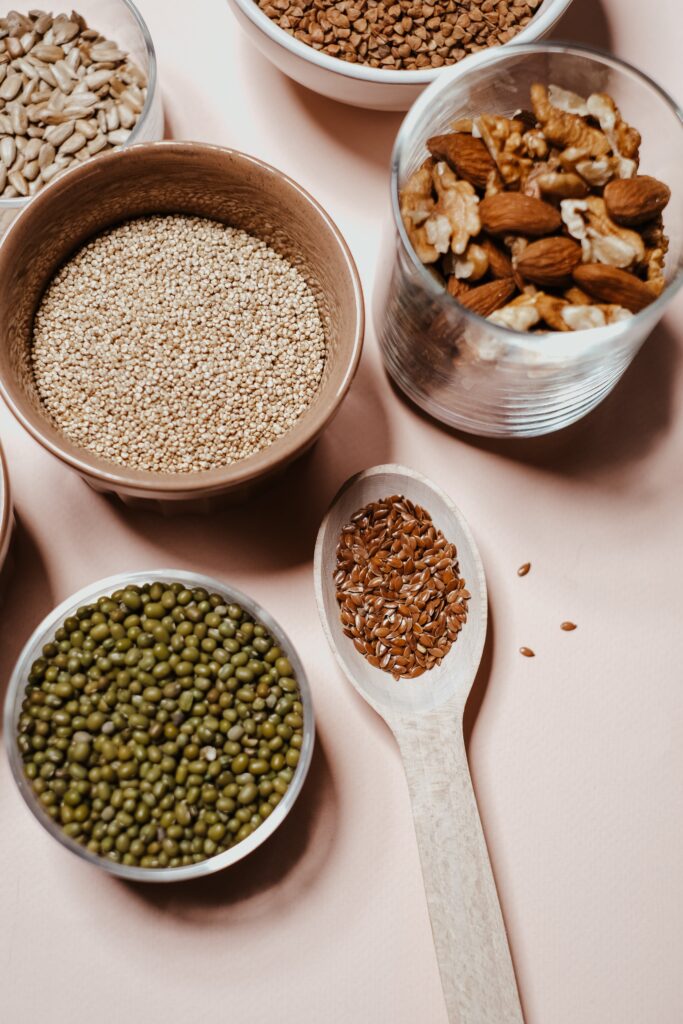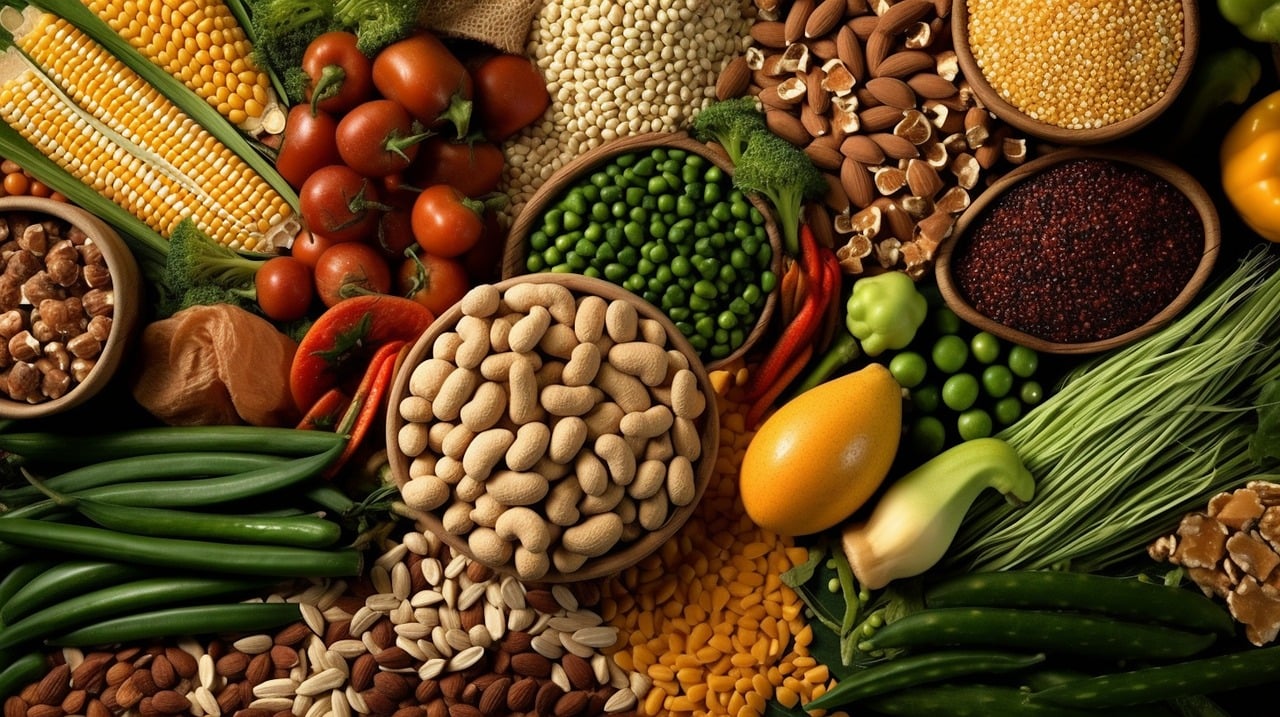This article explores the transformative power of Quinoa, a superfood known for its numerous health benefits. It highlights eight reasons why incorporating quinoa into your diet can improve your well-being. Firstly, quinoa is nutrient-rich, packed with essential vitamins, minerals, and antioxidants. It is also a protein powerhouse, containing all nine essential amino acids essential for muscle repair and overall body function. Secondly, Quinoa supports heart health, lowering cholesterol levels, reducing blood pressure, and supporting cardiovascular well-being.
Thirdly, quinoa’s low glycemic index and high fiber content contribute to stable blood sugar levels, making it an ideal choice for individuals managing diabetes or preventing insulin spikes. Lastly, quinoa’s fiber content promotes digestive health by regulating bowel movements and fostering a healthy gut microbiome. Lastly, quinoa aids in weight management by controlling appetite and curbing cravings. Lastly, quinoa’s rich calcium, magnesium, and phosphorus content supports bone health, reducing the risk of osteoporosis and promoting overall bone strength. Lastly, quinoa’s versatility in various culinary creations allows for its delicious taste and texture.
Welcome to a journey of wellness and nutrition as we explore the remarkable health benefits of quinoa. This pseudo grain, often hailed as a superfood, has been a staple in the diets of ancient civilizations for centuries. Today, we delve into the evidence-backed advantages that make quinoa a nutritional powerhouse.
Although it has been cultivated in South America since ancient times, quinoa has acquired appeal as a health food in the United States other Westernized countries.

The Inca Indians actually revered this ancient grain as a sacred food hundreds of years ago.
Over the last several decades, quinoa’s appeal has increased dramatically in tandem with the surge in demand for wholesome, gluten-free grain substitutes that are simple to grow
Quinoa is rich in nutrients and may also have health advantages.
Contents
1. Rich Source of Nutrients
Quinoa stands out as an exceptional source of essential nutrients. Packed with vitamins, minerals, and antioxidants, it provides a comprehensive array of goodness for your body. From fiber that aids digestion to magnesium crucial for muscle function, quinoa ensures you get a nutrient-packed punch with every serving.
Quinoa, also known as Chenopodium quinoa, is a rich source of essential vitamins, minerals, and antioxidants. Its vitamin B complex plays a crucial role in energy metabolism, nerve function, and red blood cell synthesis. Quinoa is also abundant in essential minerals like magnesium, iron, zinc, and potassium, which are essential for muscle and nerve function.
Quinoa’s antioxidants, including flavonoids, quercetin, and kaempferol, neutralize free radicals, contributing to cellular health and preventing chronic diseases. Quinoa’s high fiber content promotes digestive health, preventing constipation and aiding weight management. Its nine essential amino acids are the building blocks of protein, essential for muscle repair, growth, and overall cellular function. Quinoa’s nutritional richness extends beyond basic nutrients, making it a versatile and comprehensive solution for various nutritional needs.

2. Complete Protein Profile
For those seeking plant-based protein alternatives, quinoa is a game-changer. Unlike many grains, it boasts a complete protein profile, containing all nine essential amino acids. This makes it an invaluable addition to vegetarian and vegan diets, supporting muscle repair, growth, and overall well-being.
Quinoa is a unique plant-based protein source due to its complete amino acid composition, which includes all nine essential amino acids. These amino acids are crucial for the human body’s physiological functions and are not produced by the body. Quinoa’s amino acid composition closely resembles that of animal-based proteins, providing a balanced spectrum for those relying on plant-based diets or seeking alternatives to animal proteins. Quinoa’s amino acids are essential for muscle repair, growth, and maintenance, making it an invaluable resource for athletes and fitness enthusiasts.
Quinoa’s complete protein profile also offers versatility in protein intake, allowing individuals to meet their protein needs without resorting to a combination of different sources. Its balanced amino acid composition contributes to sustained energy levels and overall well-being, playing a role in neurotransmitter synthesis, immune system function, and enzyme and hormone production.
3. Heart-Healthy Goodness
Maintaining cardiovascular health is paramount, and quinoa contributes admirably to this goal. Abundant in heart-healthy monounsaturated fats and omega-3 fatty acids, it helps reduce the risk of cardiovascular diseases. Incorporating quinoa into your diet promotes optimal cholesterol levels and supports a healthy heart.Quinoa, rich in omega-3 fatty acids, is a valuable addition to a heart-healthy diet. It plays a crucial role in cholesterol management, reducing LDL levels and promoting HDL levels, thereby reducing the risk of atherosclerosis and related heart issues.
Quinoa also aids in blood pressure regulation by counteracting the hypertensive effects of sodium. Its rich antioxidant content, including flavonoids and polyphenols, protects the cardiovascular system from oxidative stress, reducing inflammation and damage to blood vessels. Quinoa’s nutritional composition also promotes improved endothelial function, promoting better blood flow and reduced clotting risk. It also aids in diabetes management, indirectly supporting heart health by regulating blood sugar levels. Quinoa’s anti-inflammatory properties reduce inflammation markers, reducing the risk of inflammatory-related heart diseases.
4. Blood Sugar Regulation
For individuals with diabetes or those looking to manage blood sugar levels, quinoa emerges as an ally. Its low glycemic index prevents rapid spikes in blood sugar, providing sustained energy and aiding in better blood sugar control. This makes quinoa a sensible choice for those on a diabetic-friendly diet.
Quinoa is a highly effective food for blood sugar regulation due to its low glycemic index (GI), sustained energy release, rich dietary fiber, magnesium content, and complete protein profile. This low GI ensures a gradual increase in blood glucose levels, preventing sudden spikes and crashes.
Quinoa’s complex carbohydrates provide a controlled release of glucose into the bloodstream, while its rich dietary fiber slows down glucose absorption, promotes fullness, and positively impacts insulin sensitivity. Quinoa’s magnesium content enhances insulin sensitivity, facilitating better control over blood sugar levels. Its complete protein profile slows down carb digestion and absorption, preventing rapid spikes in blood glucose. Quinoa’s overall nutritional composition makes it a suitable choice for individuals managing diabetes, as it provides a holistic approach to achieving and maintaining stable blood sugar levels.
5. Gluten-Free Wonder
Quinoa shines as a gluten-free alternative, offering a wholesome grain option for individuals with gluten sensitivities or celiac disease. Its versatility makes it a superb base for various dishes, ensuring that those with gluten restrictions can still enjoy a diverse and delicious diet without compromise.
Quinoa is a versatile and nutritious alternative to gluten-free diets, providing a satisfying alternative to those avoiding gluten-containing grains. Its rich nutrient profile helps balance nutrient deficiencies, such as iron, magnesium, and B vitamins, which may be absent in some gluten-free diets. Quinoa’s texture and nutty flavor enhance the culinary experience, making it a key player in promoting digestive comfort and supporting individuals with celiac disease. Its versatility and nutritional density make it a valuable gluten-free gem.

6. Weight Management Support
If you’re on a journey to maintain or achieve a healthy weight, quinoa deserves a spot on your plate. The combination of fiber, protein, and a low-calorie content makes it a satiating choice that helps control appetite and promotes a feeling of fullness, aiding in weight management efforts.
Weight Management Support: Quinoa’s Integral Role
Quinoa emerges as a powerful ally in the realm of weight management, offering a combination of nutritional elements that contribute to satiety, balanced calorie intake, and overall support for those striving to achieve or maintain a healthy weight.
1. Satiety through Fiber-Rich Goodness
A fundamental aspect of quinoa’s contribution to weight management lies in its high fiber content. Fiber plays a pivotal role in promoting a feeling of fullness and satiety, which can be instrumental in curbing overeating and unnecessary snacking. Incorporating quinoa into meals ensures that you stay satisfied for longer periods, reducing the likelihood of mindless calorie consumption.
2. Protein Power for Metabolic Boost
Quinoa’s distinction as a complete protein source becomes particularly relevant in the context of weight management. Proteins are known to have a higher thermic effect compared to fats and carbohydrates, meaning the body expends more energy to digest and process them. This boost in metabolic activity supports weight loss or weight maintenance efforts, making quinoa a valuable addition to a well-rounded dietary plan.
3. Calorie Consciousness with Low-Calorie Density
For those mindful of calorie intake, quinoa proves to be a favorable option due to its low-calorie density. This means that you can enjoy a satisfying portion of quinoa without consuming excessive calories. As a result, incorporating quinoa into meals allows for a voluminous and satisfying plate while maintaining a calorie-conscious approach, crucial for weight management goals.
4. Balanced Nutrient Profile for Nourishment
Weight management is not solely about calorie counting; it’s also about obtaining essential nutrients to support overall health. Quinoa, with its rich nutrient profile, ensures that your body receives the necessary vitamins and minerals even when adhering to a controlled calorie intake. This balanced nutrition is essential for sustaining energy levels, promoting vitality, and avoiding nutrient deficiencies during weight loss journeys.
5. Versatility in Culinary Choices
Quinoa’s versatility extends beyond its nutritional composition; it adds variety and flavor to meals, making the weight management journey more enjoyable. From salads and stir-fries to soups and grain bowls, quinoa’s adaptability allows for diverse and delicious culinary choices that align with your weight goals without compromising on taste.
6. Support for Lean Muscle Maintenance
Maintaining lean muscle mass is crucial for effective weight management. Quinoa, with its complete protein profile, supports muscle preservation and growth. This is particularly beneficial for individuals aiming to lose weight without sacrificing muscle mass, as is often the case with certain restrictive diets.
In conclusion, quinoa’s multifaceted approach to weight management, combining satiety, protein power, balanced nutrition, and culinary versatility, makes it a standout choice for individuals on a journey towards achieving and maintaining a healthy weight.
7. Rich in Antioxidants
The battle against oxidative stress finds a formidable opponent in quinoa. Bursting with antioxidants, this superfood helps neutralize free radicals, protecting your cells from damage. Regular consumption of quinoa can contribute to overall well-being and may play a role in preventing chronic diseases.
Quinoa is a nutritional gem with a rich reserve of antioxidants, which play a crucial role in neutralizing free radicals and providing health benefits. Flavonoids, found in quinoa, are guardians of cellular health, combating oxidative stress and reducing the risk of chronic diseases. Quercetin, another potent antioxidant, supports the immune system and provides protection against infections.
Kaempferol, a flavonoid associated with cardiovascular health, reduces inflammation and improves blood vessel function. Quinoa’s antioxidants neutralize free radicals, maintaining cell integrity and preventing aging and diseases. They also contribute to an anti-inflammatory environment, reducing inflammation and supporting a healthier inflammatory balance. Quinoa’s antioxidant-rich profile also provides protection against chronic diseases, reducing the risk of cardiovascular diseases, certain cancers, and neurodegenerative disorders.
8. Bone Health Enhancement
For strong and resilient bones, incorporating quinoa into your diet is a wise decision. Its notable content of manganese, phosphorus, and calcium supports bone density and strength, reducing the risk of osteoporosis and ensuring your skeletal system remains robust throughout the years.
Quinoa is a rich source of essential minerals that contribute to bone health. Manganese, a trace mineral, plays a crucial role in bone formation and maintenance, fostering the synthesis of collagen. Phosphorus, another essential mineral, is vital for bone structure and is found abundantly in quinoa.
Quinoa’s calcium content aids in bone density, reducing the risk of conditions like osteoporosis. Magnesium, essential for bone density and strength, regulates the activity of osteoblasts, promoting the efficient incorporation of calcium into the bone structure. Quinoa’s comprehensive mineral cocktail supports overall bone health, providing a diverse array of nutrients for optimal growth, maintenance, and resilience. It is also a valuable dietary choice for preventing osteoporosis, a condition characterized by weakened bones and increased fracture risk. In summary, quinoa is a wholesome and delicious addition to a bone-friendly diet.

Conclusion
In conclusion, the evidence is compelling – quinoa isn’t just a trendy grain; it’s a nutritional powerhouse that offers a myriad of health benefits. From providing essential nutrients to supporting heart health and aiding in weight management, quinoa stands as a versatile and valuable addition to any well-balanced diet.
If you’re ready to elevate your nutritional choices and embrace the health advantages of quinoa, explore diverse recipes and creative ways to incorporate this superfood into your meals. Your journey to enhanced well-being begins with a simple yet powerful grain – quinoa.

